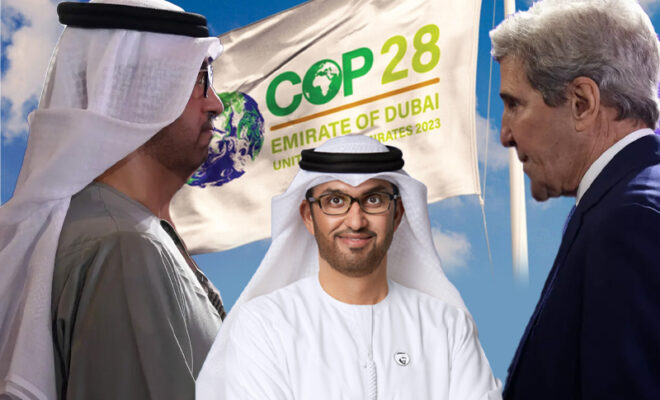UAE Oil Company’s Head To Lead Next UN Climate Summit

Al Jaber has been appointed as Cop28 UAE President, now he’s also set to lead the next UN Climate Summit. Does a UAE oil company’s head deserve this?
Appointment of Cop28 UAE President
Several environmentalists scoffed when the UN declared that the United Arab Emirates would hold its COP (Conference on Climate Change) in 2023. An oil state hosting a climate conference?
The derision only grew louder when the UAE said that Sultan Al Jaber, the president, would lead its national oil firm.
Al Jaber is absolutely the kind of partner the climate movement needs, so the protesters should quit whining.
Al Jaber described the enormity of the task at hand on a recent trip to India. He expressed the UAE’s desire to assist India in achieving its challenging clean energy targets.
Further funding for decarbonization technologies, such as nuclear and hydrogen generation, was demanded.
Additionally, he supported a society-wide strategy that involves all sectors and places greater demands on financial institutions and development banks.
Initiatives Taken For Climate Actions
In addition to having a financial interest in the oil industry, Al Jaber also has a stake in the clean energy sector.
He is the organization’s first CEO and current chair. Masdar plans to produce 100 gigawatts of renewable energy by the end of the decade, which is more than several larger European countries have pledged to do.
The effort to combat climate change may alter if every country set a goal to generate as much renewable energy per person over the next 7 years as the UAE.
To their credit, most world leaders, including President Joe Biden’s special climate envoy John Kerry, have backed Al Jaber’s selection and the UN’s choice to hold this year’s COP in the UAE.
Nonetheless, skepticism is unavoidable, which increases the pressure on Al Jaber to perform.
Al Jaber must increase pressure on wealthy nations to uphold their financial commitments to the improving world as he gets ready for the summit in November, push development banks and sovereign wealth funds to raise their goals, and assist in removing obstacles to more private sector investment in clean energy projects, particularly in developed nations.
Commitments Towards Clean Energy Goals
Al Jaber also raised the issue that has been largely ignored: the necessity of reducing the impact on climate change of fossil fuels while the world switches to clean energy.
He responded to his detractors by saying, “It is not a conflict of interest; it is in our mutual purpose to have the energy industry cooperating with everyone.”
Moreover, Al Jaber said, “There’s no getting around the fact that the world still requires oil and gas and will remain so for some time, a reality that Al Jaber’s critics tend to disregard.”
“In order to combat climate change, it is not necessary to instantly stop all oil and gas production; rather, it is necessary to create enough renewable energy to phase it out as rapidly as possible.
To seize the climate goals through the implementation of policies that are “pro-growth and pro-climate at the same time,” strengthening economies and raising living standards.”
Zero Carbon Emission Goal & ADNOC Agreement
The UAE has bigger goals and is already taking several initiatives in the climate sector. The country has a vision of Zero Carbon Emission by 2050, energy transition, as well as focused on renewable energy sources.
The agreements signed by ADNOC, Masdar aims globally to support clean energy plans for other nations too. This proves the UAE’s commitment towards a common global goal of climate action.
Also Read:- Govt To Initiate Bharatmala 2.0 For Vast Infrastructure Connectivity



